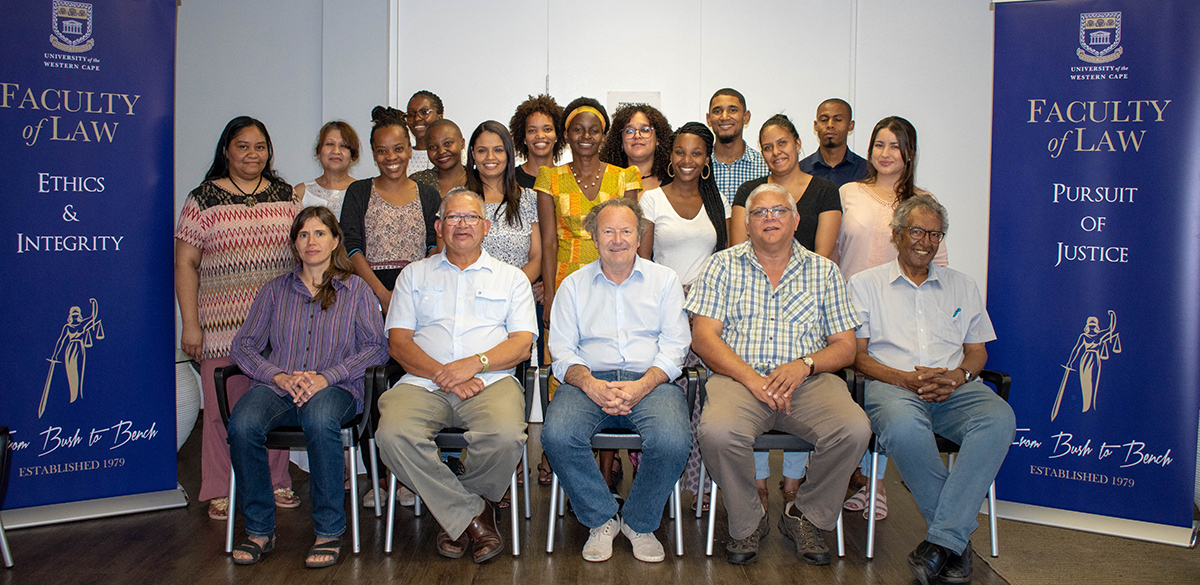South African law students learn through roleplay and simulation

Law students at the University of the Western Cape in South Africa were surprised when a two-day course on corruption and money laundering by Professor Mark Pieth and Kathrin Betz turned out to involve acting out roleplays and working on a simulated money laundering case.
Role-playing a corruption case
Acting as prosecutors, defence lawyers and judges, the students first had to resolve a corruption case by applying the UN Convention Against Corruption (UNCAC).
This was one of the topics covered in the morning lectures, which focused on the international legal framework against corruption and its domestic implementation, challenges for businesses including facilitation payments, and Collective Action.
The roleplay helped the students quickly get to know each other and feel more comfortable raising questions in the group discussions. Some students were LLBs with no experience in corruption or money laundering, while others were more experienced LLMs and practising attorneys. Some students had experience in compliance and in the forensic industry.
Their diverse backgrounds meant the discussions were lively and varied.
Solving a simulated money laundering case
On the second day, the group resolved a money laundering case step-by-step. This involved identifying potential flows of illicit funds via offshore companies and foreign bank accounts. The students also had to grapple with issues such as the intermingling of proceeds of crime with clean assets.
The students found they could immediately put to use the knowledge they had gained in that morning’s lectures. These covered:
- the modus operandi and phases of money laundering;
- the emergence of an international standard against money laundering, in particular the FATF 40 Recommendations;
- the risk-based approach;
- domestic implementation of the international standard.
The students were particularly interested in learning about current debates around international arbitration and corruption/money laundering.
About the workshop
Mark Pieth and Kathrin Betz led the workshop, which is delivered annually at South Africa’s University of the Western Cape, on 18–19 February 2020.
Mark Pieth is Professor of Criminal Law at the University of Basel and President of the Basel Institute on Governance. His work with Kathrin Betz, a Lecturer at the University of Basel’s Law faculty, includes running the University’s Arbitration and Crime Competence Centre.


